This will the first in a fun series of posts looking at the old school approach to training Olympic lifters. Between Cross Fit, using the Olympic lifts for athletics, and Bulgarian/Chinese/Flavor of the Moment approaches to Olympic lifting, a lot of this has been lost.
These first two posts will focus on the training of absolute beginners. In many ways, beginners are the easiest to develop training programs for because they need to work on everything. This program focuses on teaching the lifts, developing the joints and muscles, and establishing a foundation in terms of strength and work capacity that can be built upon in the future.
These are very turn-key programs. This means that they take a methodical, step-by-step approach. Each week, each month, builds upon the previous ones. At the end of the programs in this post, the athlete will understand the various phases of the lifts, will have very consistent technique, and will also have a strength/hypertrophy base for the lifts.
First Month:
The first four weeks begin teaching the lifts. The power snatch and power clean are done from the hang and the push jerk is introduced. There is no max during this time as the athlete does not have consistent enough technique. Overhead squats and front squats are used to develop strength and teach the receiving positions of the snatch and clean. Back squats, back raises, military presses, and lunges develop the athlete’s joints and muscles.
The first day of the week focuses on the snatch, the second the clean and jerk. I prefer to group back squats and hip extension work with the snatch, front squats and military presses with the clean and jerk – though this will switch with intermediate lifters. The last day of the week is meant to simulate the fact that weightlifters have to compete in both lifts on the same day, so the lifts are grouped together on the last day of the week.
The power snatch from the hang, bar above the knees, teaches the explosion. It reinforces correct back position during lifting and teaches the overhead position. The power clean from the hang, bar above the knees, teaches the explosion and teaches the athlete to receive the bar in the clean. The push jerk teaches the dip and drive as well as the path of the bar during the jerk.
| Workout | Week 1 | Week 2 | Week 3 | Week 4 |
| Power Snatch, h, AKOverhead Squats
Back Squats Back Raises |
3×4
3×6
3×12-15 3×12-15 |
3×4
3×6
3×12-15 3×12-15 |
3×4
3×6
3×10-12 3×10-12 |
3×4
3×6
3×10-12 3×10-12 |
| Power Clean, h, AKPush Jerk
Front Squats Military Press |
3×4
3×4 3×6-10 3×12-15 |
3×4
3×4 3×6-10 3×12-15 |
3×4
3×4 3×4-8 3×10-12 |
3×4
3×4 3×4-8 3×10-12 |
| Power Snatch, h, AKPower Clean, h, AK + Push Jerk
Lunges |
3×4
3×4+4
3×12-15 |
3×4
3×4+4
3×12-15 |
3×4
3×4
3×12-15 |
3×4
3×4
3×12-15 |
Second Month:
The second month sees the power variations from knee height introduced. The set-up of the training sessions remains the same as in the first month (i.e. the first day emphasizes the snatch, etc.). The split jerk is introduced beginning in this phase. I’m not a fan of the power jerk exercise, it doesn’t make sense as a progression in teaching the jerk to me so I head straight into the split jerk after a few weeks of training. Note that the assistance exercises are changing, this will continue throughout the program for variety and to keep the athlete adapting.
A few words about the third day of the program. Beginning with this month of training, the third day becomes combination lifts. For example, the athlete will do three power snatches from the hang with the bar above the knee, then after the last snatch stand up with the bar overhead and perform six overhead squats. There are several reasons for incorporating these combination lifts. First, they build endurance as these are extremely exhausting exercises. Second, the third day is meant to simulate competition where both lifts are performed on the same day. By using combination lifts on the third day of training, it makes the training more difficult than what the athlete will experience in competition – making the competition seem easier by comparison. Finally, the power variations are important for technique and (eventually) working on technical flaws. But at a certain point we’ll switch to the squat variations, these combination lifts begin preparing the athlete for putting all the parts together.
At the eighth week of training, maxes are taken on the key lifts. From this point on the lifts will be performed at a percentage of this max.
| Workout | Week 5 | Week 6 | Week 7 | Week 8 |
| Power Snatch, h, KOverhead Squats
Back Squats Good Mornings, Standing |
3×4
3×6
3×10-12 3×10-12 |
3×4
3×6
3×8-12 3×8-12 |
3×4
3×6
3×8-12 3×8-12 |
1-RM
3x6x60%
1-RM 3×8-12 |
| Power Clean, h, KSplit Jerk
Front Squats Military Press, Seated |
3×4
3×4 3×6-10 3×10-12 |
3×4
3×4 3×6-10 3×8-12 |
3×4
3×4 3×6-10 3×8-12 |
1-RM
1-RM 1-RM 3×8-12 |
| Power Snatch, h, K + Overhead SquatsPower Clean, h, K + Front Squats + Split Jerk
Lunges, bar on front of shoulders |
3×3+6
3×3+6+3
3×8-12 |
3×3+6
3×3+6+3
3×8-12 |
3×3+6
3×3+6+3
3×8-12 |
3×3+5×60%
3×3+5+2×60%
3×8-12 |
Third Month:
The third month sees some differences. The three lifting days are organized the same (Monday snatch, etc.). Every lifting workout is done at a percentage of 1-RM. This follows a 3+1 approach, where the weight is increased stepwise over three weeks and then there is a back-off week. The power snatch and power clean are being done from the hang, with the barbell below the knees. This reinforces everything that has been learned to this point and teaches the athlete to move the bar around their knees. The third lifting day is still a combination lifting day, but the intensity is lower than the other workouts due to the high volume and the fatigue that this will cause.
Overall this is a light month of workouts. The idea is to get the athlete used to the daily grind of training at a percentage of their 1-RM. It is important that they be closely monitored for their technique.
Two new workouts have been inserted, these are general conditioning workouts. They include mobility work, kettlebell work, heavy rope work, and sprints and plyometrics. However, this is something the athlete should avoid overdoing. It’s important to include to make the athlete more well-rounded, injury resistant, fatigue-resistant, but overdoing it can be counter-productive. The swings and heavy rope work are done for time (3×30” = three sets of 30 seconds each).
| Week 9 | Week 10 | Week 11 | Week 12 | |
| Power Snatch, h, BKOverhead Squats
Back Squats Good Mornings, Seated |
3x3x60%
3x6x60%
3×8-12×70% 3×8-12 |
3x3x65%
3x6x65%
3×8-12×75% 3×8-12 |
3x3x70%
3x6x70%
3×8-12×80% 3×8-12 |
3x3x60%
3x6x60%
3×8-12×70% 3×8-12 |
| Dynamic Flexibility ExercisesKettlebell Swings
Heavy Rope Slams CM Jumps
|
10-15 minutes
3×30”
3×30”
3×10 |
10-15 minutes
3×45”
3×45”
3×10 |
10-15 minutes
3×60”
3×60”
3×10 |
10-15 minutes
3×60”
3×60”
3×10 |
| Power Clean, h, BKSplit Jerks
Front Squats Dumbbell Military Press |
3x3x60%
3x3x60% 3×4-8×60% 3×8-12 |
3x3x65%
3x3x65% 3×4-8×65% 3×8-12 |
3x3x70%
3x3x70% 3×4-8×70% 3×8-12 |
3x3x60%
3x3x60% 3×4-8×60% 3×8-12 |
| Dynamic Flexibility ExercisesKettlebell Swings
Heavy Rope Slams Sprints |
10-15 minutes
3×30”
3×30”
5×10 meter |
10-15 minutes
3×45”
3×45”
5×10 meter |
10-15 minutes
3×60”
3×60”
5×10 meter |
10-15 minutes
3×60”
3×60”
5×10 meter |
| Power Snatch, h, BK + Overhead SquatsPower Clean, h, BK + Front Squat + Split Jerk
Lunges, bar overhead |
3×3+5×60%
3×3+5+2×60%
3×8-12 |
3×3+5×60%
3×3+5+2×60%
3×8-12 |
3×3+5×60%
3×3+5+2×60%
3×8-12 |
3×3+5×60%
3×3+5+2×60%
3×8-12 |
Fourth Month:
There are a number of changes with this last month. First, the power snatch and power clean are being performed from the floor. Second, pulls have been introduced. Generally it’s not a good idea to introduce these too early as this can have a detrimental effect to developing technique if lifters learn to get sloppy with the pulls. Now it’s introduced to strengthen the explosion for the snatch and clean. The assistance exercises continue to be rotated. The weights are heavier than in the previous month, moving up to 85-90%. The athlete will max during this phase on the squats. Note that week 17 should be a competition.
| Week 13 | Week 14 | Week 15 | Week 16 | |
| Power SnatchSnatch Pulls, h, AK
Overhead Squats Back Squats Romanian Deadlifts |
3x3x75%3x4x80%
3x5x75% 3×8-12×75% 3×8-12 |
3x3x80%3x4x85%
3x5x80 3×8-12×80% 3×8-12
|
3x2x85%3x3x90%
3x4x85% 3×6-10×85% 3×6-10 |
3x4x60%3x4x60%
3x4x60% 1-RM 3×8-12 |
| Dynamic Flexibility ExercisesSuperset: Kettlebell Swings and Heavy Rope Slams
Jump and Tuck |
10-15 minutes
3x(30”+30”)
3×10 |
10-15 minutes
3x(45”+45”)
3×10 |
10-15 minutes
3x(60”+60”)
3×10 |
10-15 minutes
3x(60”+60”)
3×10 |
| Power CleanSplit Jerk
Clean Pulls, h, AK Front Squats Military Press |
3x3x75%3x3x75%
3x4x80% 3×4-8×75% 3×8-12
|
3x3x80%3x3x80%
3x4x85% 3×4-8×80% 3×8-12 |
3x2x85%3x2x85%
3x3x90% 3×2-6×85% 3×8-12 |
3x4x60%3x4x60%
3x4x60% 1-RM 3×8-12 |
| Dynamic Flexibility ExercisesSuperset: Kettlebell Swings and Heavy Rope Slams
Bounds |
10-15 minutes
3x(30”+30”)
3×10 meters |
10-15 minutes
3x(45”+45”)
3×10 meters |
10-15 minutes
3x(60”+60”)
3×10 meters |
10-15 minutes
3x(60”+60”)
3×10 meters |
| Power Snatch + Overhead SquatsPower Clean + Front Squats + Split Jerk
Reverse Lunges Reverse Hyperextensions |
3×3+5×60%
3×3+5+2×60%
3×8-12 3×12-15 |
3×3+5×65%
3×3+5+2×65%
3×8-12 3×12-15 |
3×2+4×70%
3×2+4+2×70%
3×8-12 3×12-15 |
3×3+5×60%
3×3+5+2×60%
3×8-12 3×12-15 |
At the end of these sixteen weeks of training the lifter has extremely consistent technique, hypertrophy, and total body strength necessary to be successful at the Olympic lifts. The next phase will see the classic (squat) version of the lifts introduced, this will also follow a sixteen week pattern beginning with lifts from the hang and ending with lifts from the floor. The general conditioning workouts will be expanded to include a greater variety of exercises. Eventually, if they progress that far, the athlete will be lifting five days a week with supplementary general conditioning workouts (i.e. two workouts a day on some days).
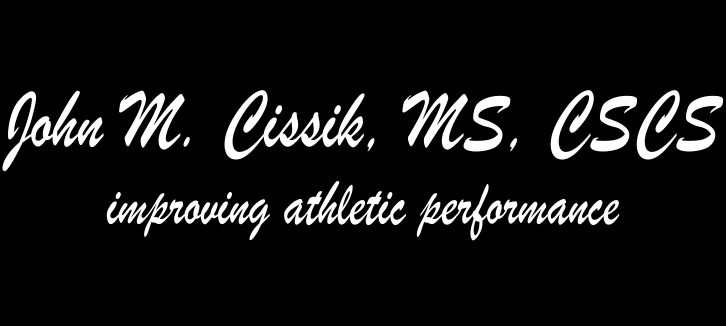
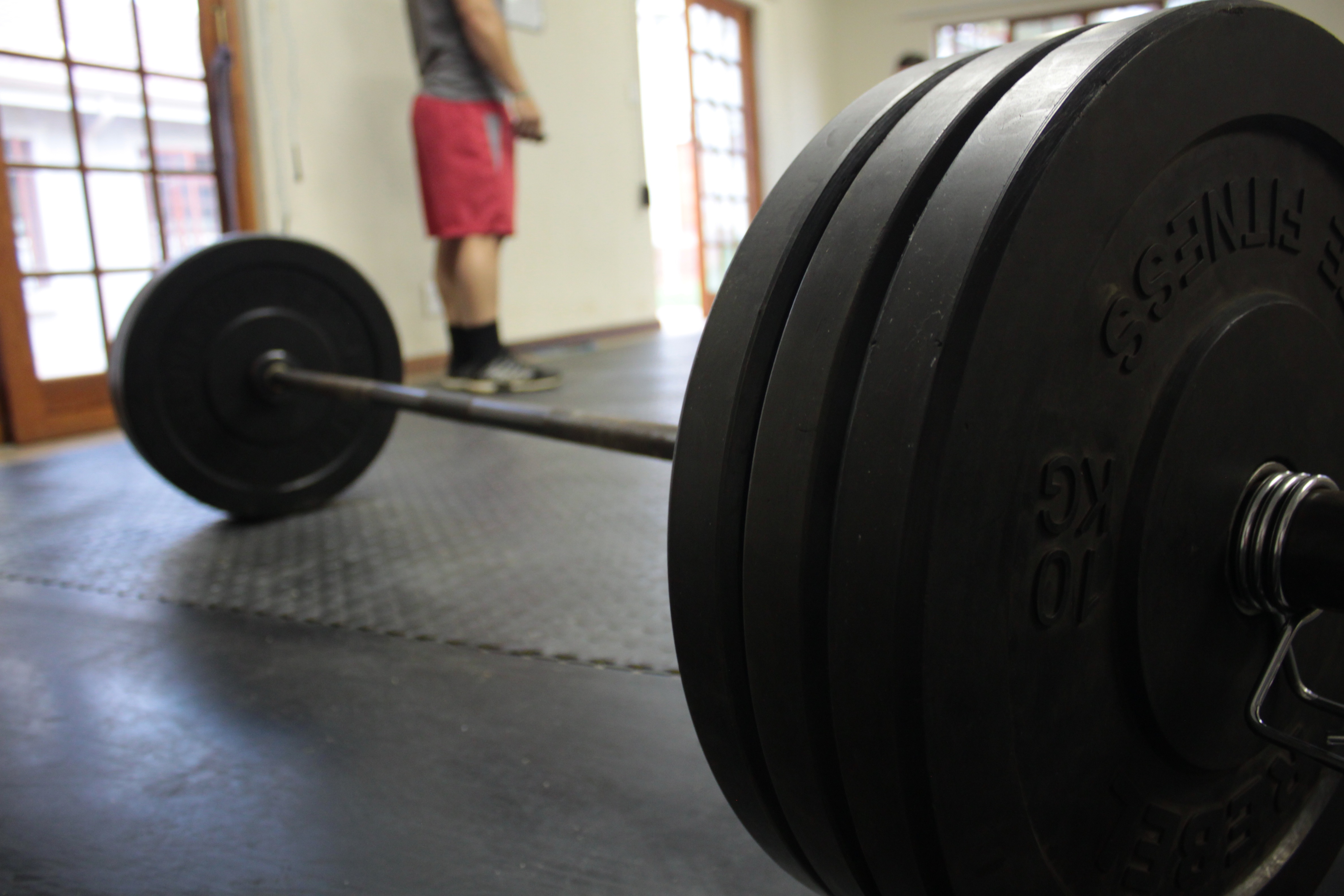
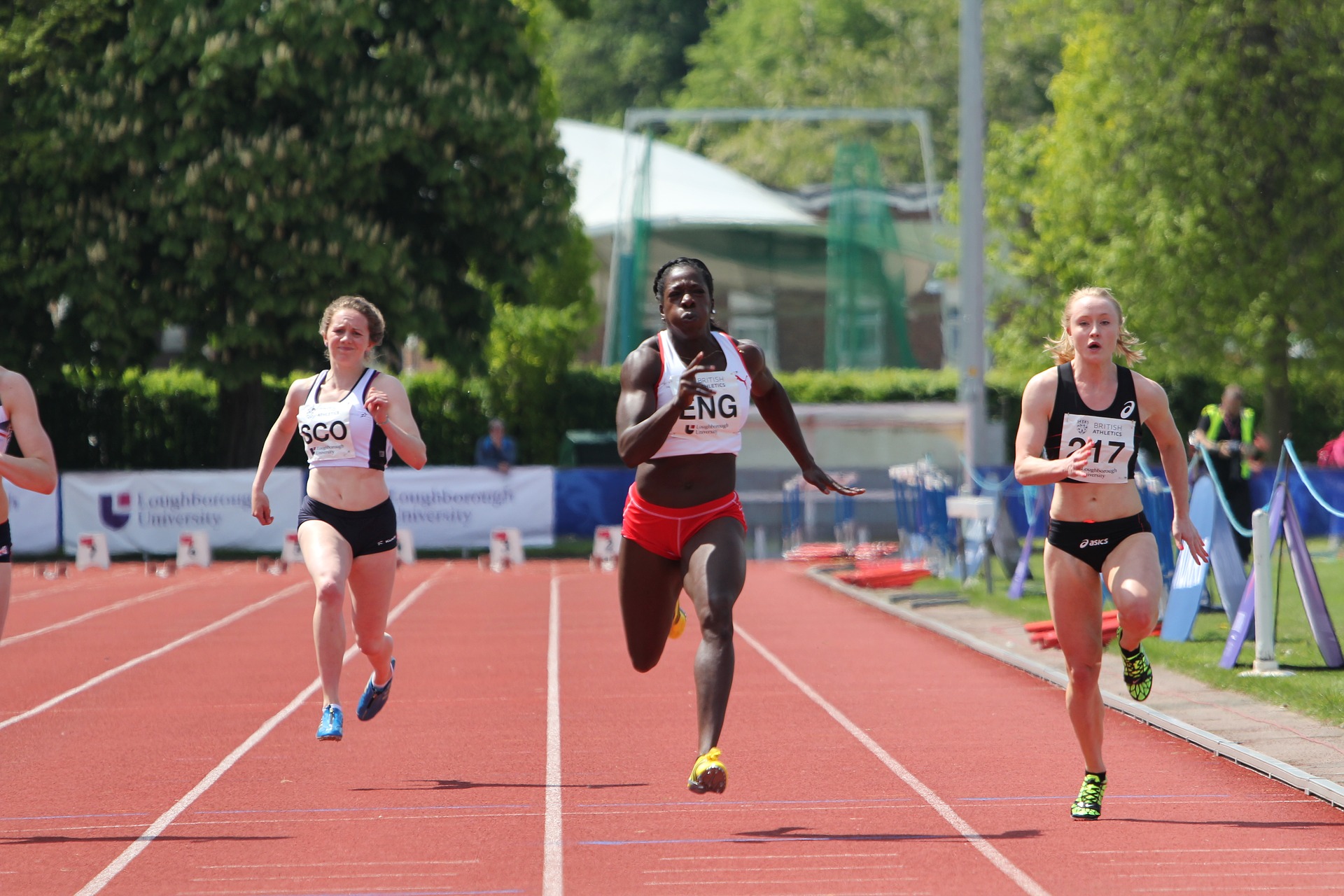
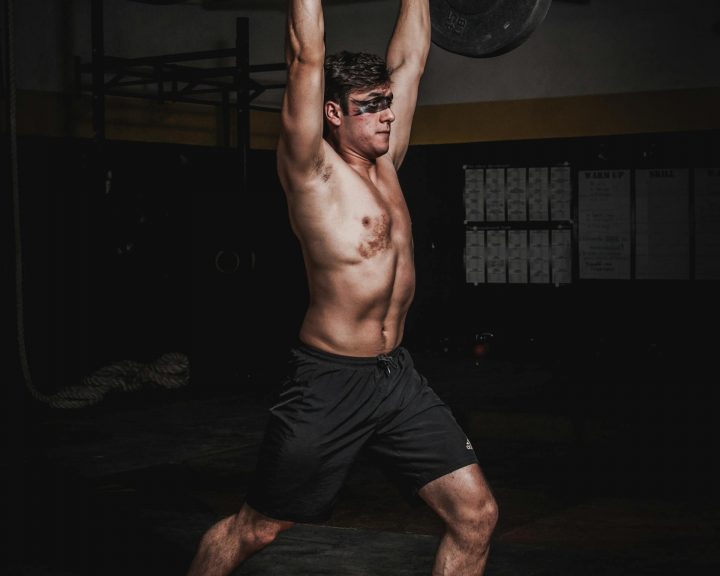
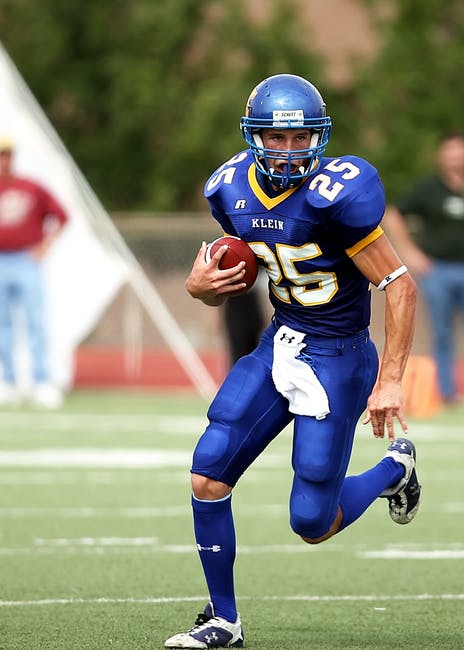
1 thought on “Training Beginning Olympic Lifters, Part 1”
2012 Lock & Load Weightlifting Championship is Saturday May 12 in Van Alstyne. Tom Spoon and Richard Fleming of the Spoon BB Club in Richardson is putting it on.
Comments are closed.